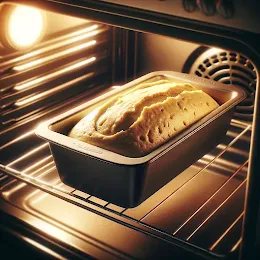Origin Story: Light Tea-Time Cake
A Light Tea-Time Cake is the epitome of simplicity and elegance, perfect for enjoying with a cup of tea in the afternoon. This cake is known for its delicate crumb, subtle flavors, and the ability to be paired with a variety of toppings or enjoyed plain. The concept of tea-time cakes has a rich history, deeply rooted in British culinary traditions.
Historical Roots
The tradition of afternoon tea began in Britain in the early 19th century, credited to Anna, the Duchess of Bedford. She found herself hungry in the long stretch between lunch and dinner and began inviting friends to join her for an afternoon snack of tea and light refreshments. This practice quickly became a social event, and soon, the idea of afternoon tea was embraced by the upper echelons of society and eventually by the middle class.
Light tea-time cakes were a staple at these gatherings, chosen for their simplicity and elegance. These cakes were designed to be light and not overly sweet, making them a perfect accompaniment to the robust flavors of tea. Classic examples include sponge cakes, Madeira cakes, and Victoria sponge cakes, all known for their light and airy textures.
Cultural Significance
Tea-time cakes hold a special place in British culture, symbolizing refinement and tradition. They are often associated with the leisurely practice of afternoon tea, a time to relax, socialize, and enjoy light refreshments. The tradition of afternoon tea has spread globally, and with it, the popularity of tea-time cakes.
The versatility of tea-time cakes also adds to their charm. They can be flavored with citrus, vanilla, or almond, and paired with fresh fruit, whipped cream, or a simple dusting of powdered sugar. This adaptability allows them to fit seamlessly into various cultural traditions and personal preferences.
Personal Connection
My interest in light tea-time cakes began during a visit to a quaint tea room in the English countryside. The experience of enjoying a slice of delicate cake with a perfectly brewed cup of tea was unforgettable. Inspired by this, I decided to recreate the experience at home.
After experimenting with different recipes, I found that the key to a perfect light tea-time cake is in the balance of ingredients and the method of mixing. Whipping the eggs and sugar to a light, fluffy consistency before gently folding in the flour and other ingredients helps achieve a delicate crumb. Adding a touch of citrus zest or a splash of vanilla enhances the flavor without overpowering the simplicity of the cake.
Recipe Evolution
Creating the perfect Light Tea-Time Cake involves a few key steps. The ingredients should be at room temperature to ensure they blend smoothly. Whipping the eggs and sugar until they are pale and fluffy helps incorporate air, which contributes to the cake's light texture. Folding in the flour gently prevents the batter from deflating, ensuring a tender crumb.
The cake can be baked in a variety of pans, from loaf tins to round cake pans, and can be finished with a simple glaze, a dusting of powdered sugar, or served with fresh berries and cream. The simplicity of the cake allows it to be a versatile base for various toppings and accompaniments.
Sharing the Tradition
Today, Light Tea-Time Cake is a favorite in my household, especially when hosting afternoon tea or casual gatherings. It is the cake I bake when I want to offer something light yet satisfying, perfect for enjoying with a hot cup of tea. Each slice is a reminder of the timeless tradition of afternoon tea and the joy of sharing simple, elegant treats with friends and family.
Ingredients:
Instructions:
- Preheat the oven to 350°F (175°C). Grease and flour an 8-inch round cake pan.
- In a large bowl, cream together the butter and sugar until light and fluffy. Add the eggs one at a time, beating well after each addition. Stir in the vanilla extract.
- In a separate bowl, whisk together the flour, baking powder, and salt. Gradually add the dry ingredients to the wet ingredients, alternating with the milk, starting and ending with the dry ingredients. Mix until just combined.
- Pour the batter into the prepared cake pan and smooth the top. Bake for 25-30 minutes, or until a toothpick inserted into the center comes out clean.
- Let the cake cool in the pan for 10 minutes, then transfer to a wire rack to cool completely.
Pro Tips:
- Ensure your butter is at room temperature for easier creaming.
- Do not overmix the batter to maintain the cake's fluffy texture.
Secret Tips:
Serving Options:
Health Benefits:
Variations & Customization Options:
- Fold in 1/2 cup of blueberries or raspberries into the batter for a fruity variation.
- Add a teaspoon of almond extract instead of vanilla for a nutty flavor.



No comments:
Post a Comment